The International Guidelines on Human Rights and Drug Policy are a set of guiding principles on the application of international human rights law in relation to drug policy. The Guidelines centralise and reaffirm existing international law and are endorsed by the United Nations Development Programme, the World Health Organisation, the Office of the High Commissioner for Human Rights, the Joint United Nations Programme on HIV/AIDS, and the International Centre on Human Rights and Drug Policy at the University of Essex. The Guidelines envision a future where every individual is entitled to dignity and rights regardless of their involvement in illicit drug economies.
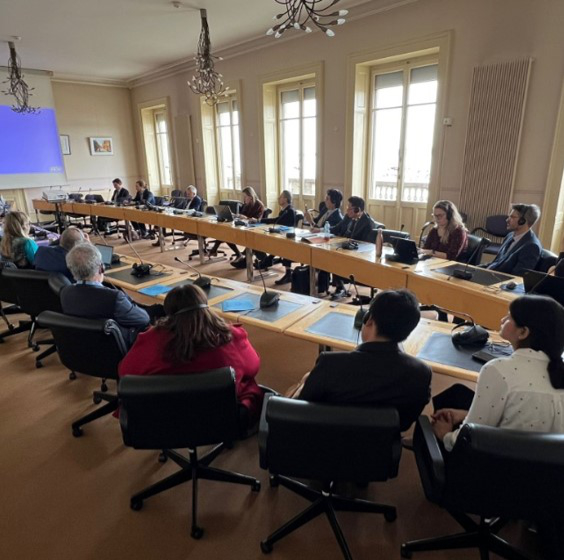
Explore the many ways the Guidelines are being implemented across the world and the services, dialogues, events and programmes that are assisting with the understanding and implementation of the Guidelines.

The Guidelines are helping judicial actors strengthen their human rights interpretation of drug-related matters from Constitution courts to magistrates at the municipal level. In a 2019 landmark case, the Constitutional Court of Colombia cited the Guidelines in their decision to halt the use of glyphosate to eradicate drug crops.
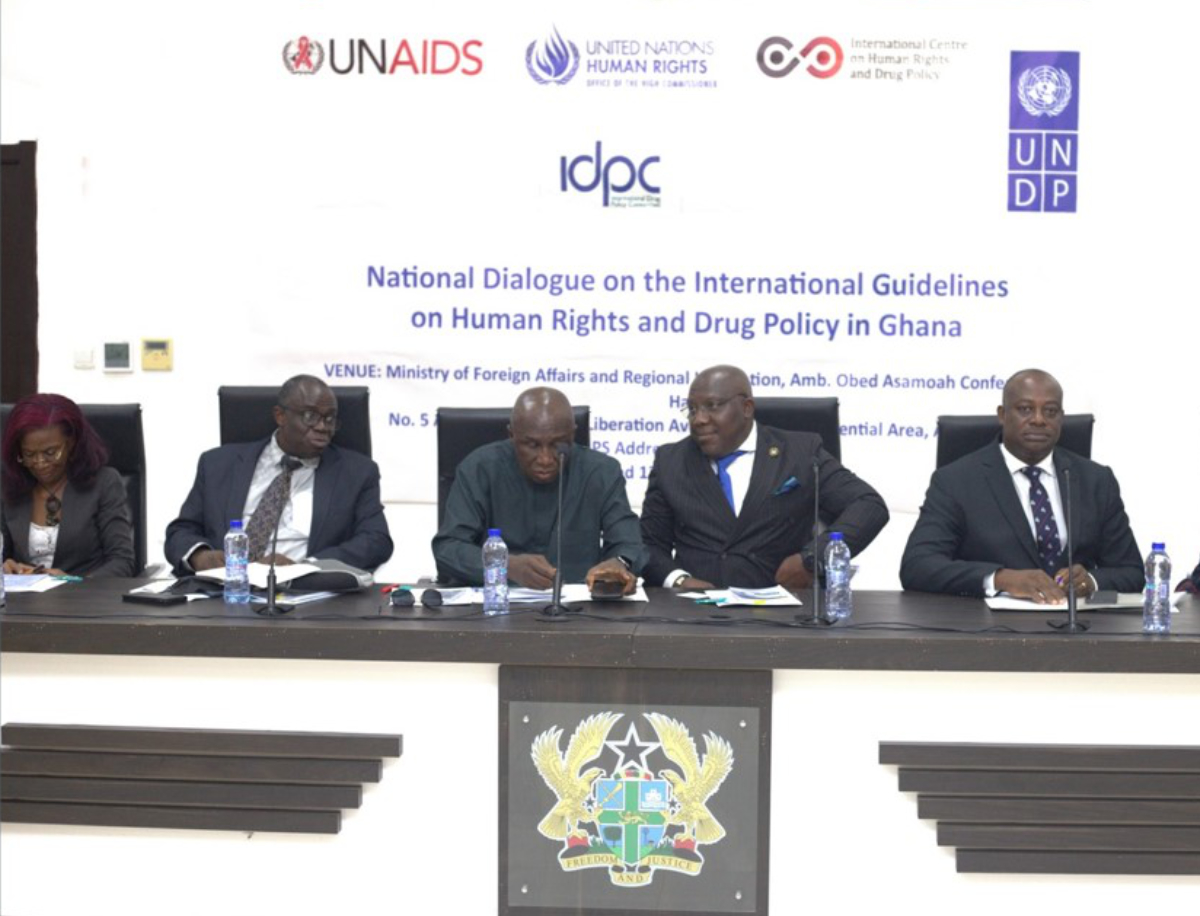
The Guidelines have served as an important convening tool to help governments and other stakeholders foreground human rights in reform discussions in both regional and national spaces. In 2020, we convened the first regional implementation dialogue in Mexico City, followed by three others in South/East Asia, Central Asia/Eastern Europe, and Sub-Saharan Africa. The government of Ghana convened a dialogue on the Guidelines in 2022 To support the development of their landmark drugs legislation reform.
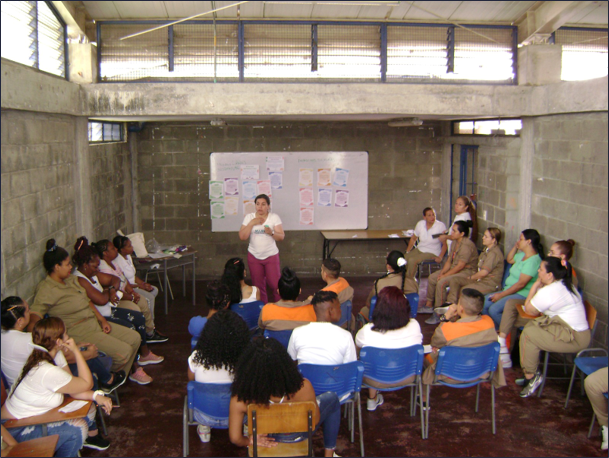
Worldwide the Guidelines are used by international institutions, NGOs, national governments, and academic organisations to deliver training to affected individuals, communities and duty bearers on their rights and obligations, empowering them to advocate for human rights-based drug laws, policies and practices.
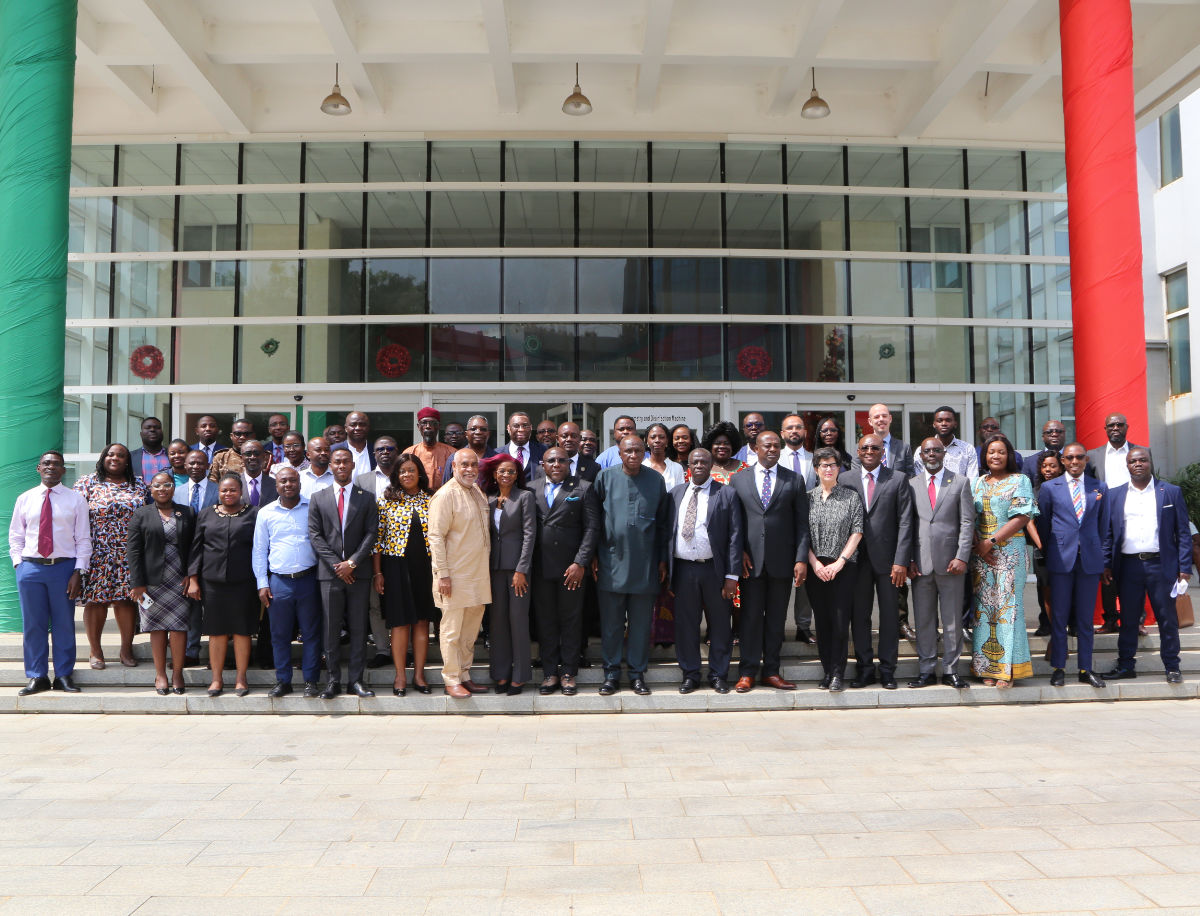
Developing a range of implementation activities in Brazil and Colombia to support government actors in strengthening their human rights approach in drug-related policy matters.
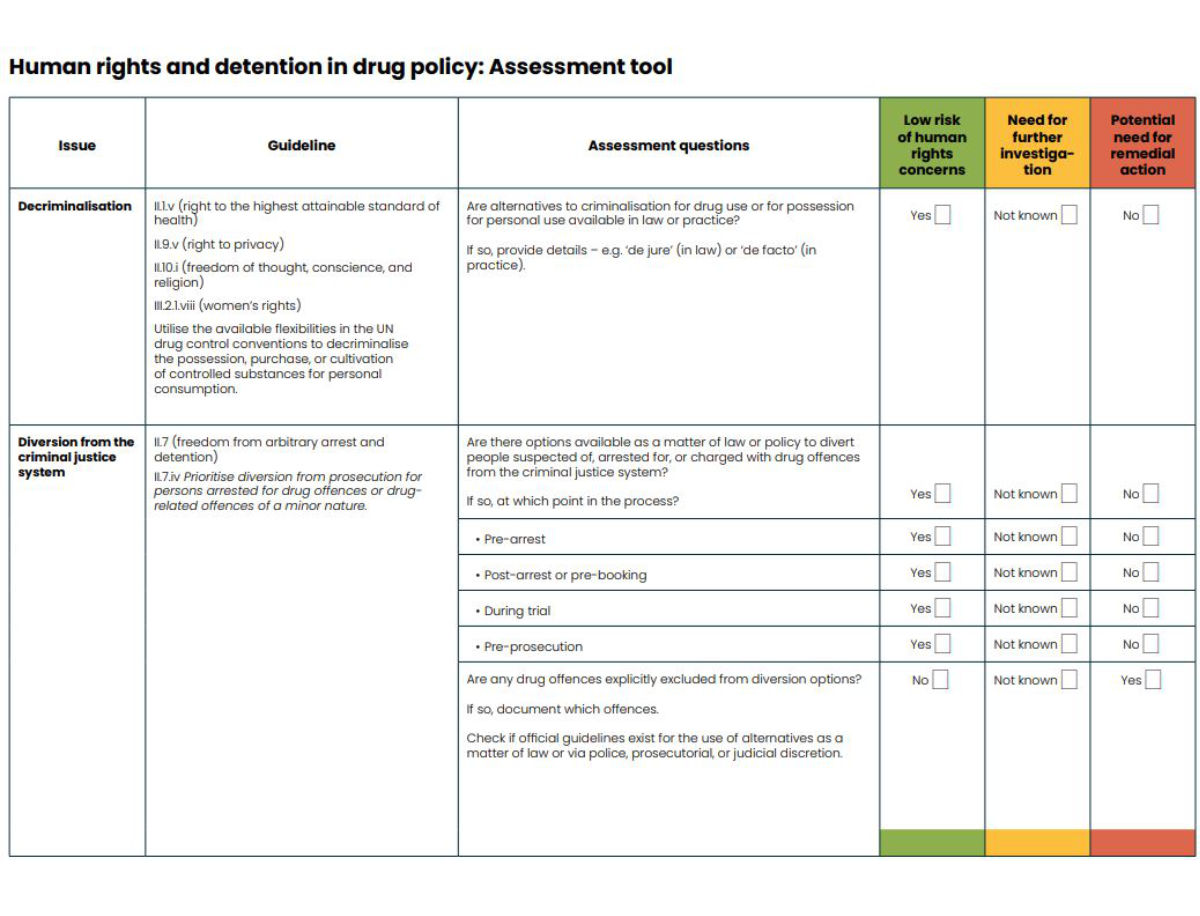
Numerous toolkits utilise the Guidelines as an effective framework to identify opportunities for drug policy reform and to monitor and evaluate implementation. See “Alternatives to Detention: A human rights assessment tool”, connecting the Guidelines to alternative pathways to sentencing and detention.
Discover how the Guidelines are being used to create positive change at a global, regional, and national level.





